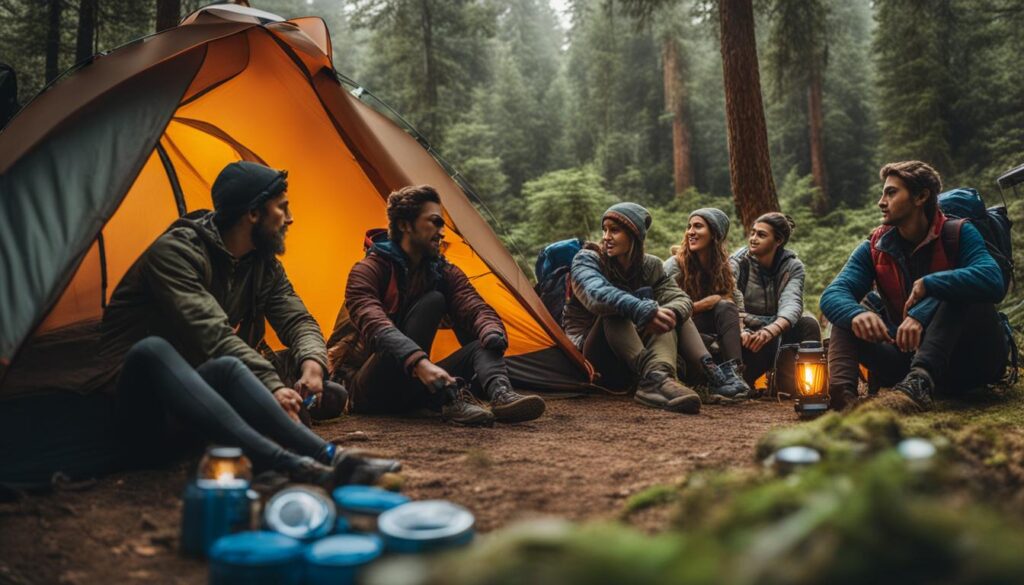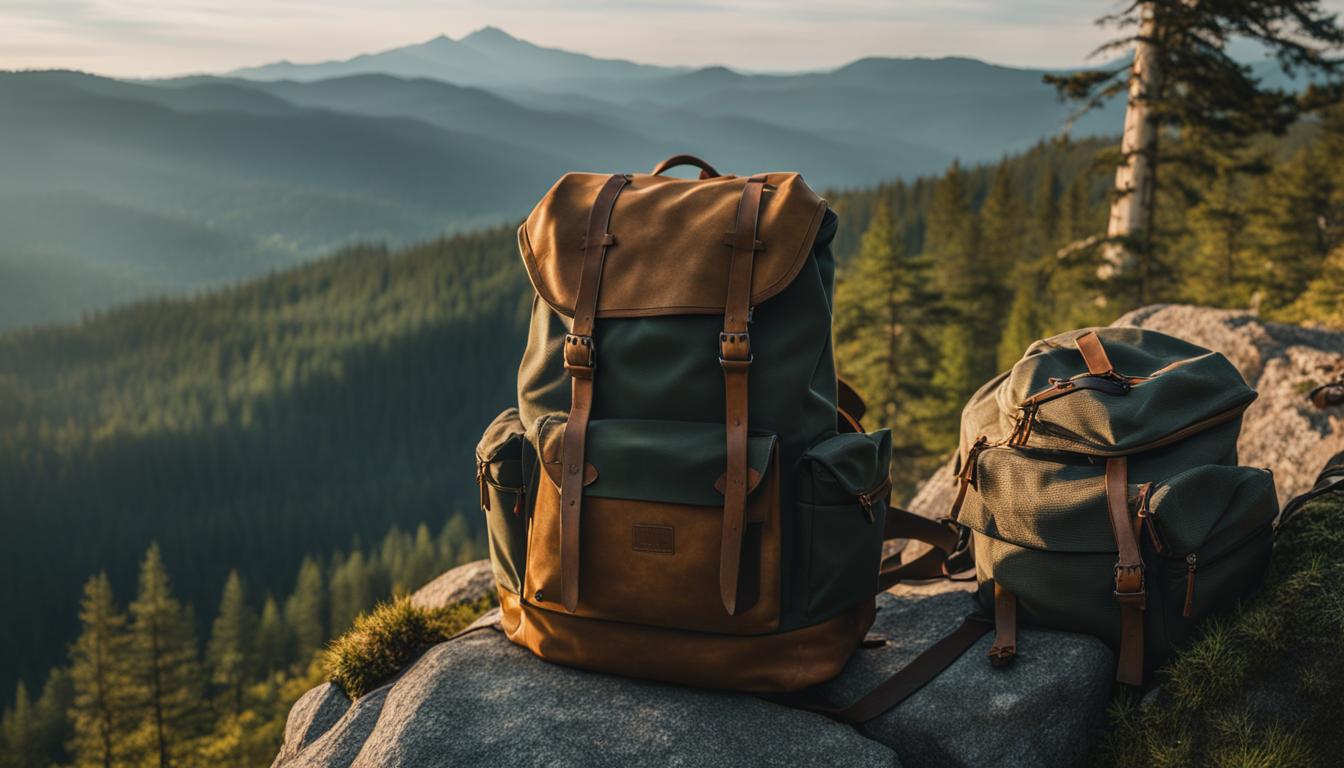When it comes to backpacking, we often focus on choosing the right gear that will enhance our outdoor experience. But have you ever considered the impact that your gear choices have on the environment? The importance of sustainable materials in backpacking equipment cannot be overstated. By opting for sustainable backpacking gear, we can minimize our environmental footprint and contribute to a more eco-friendly camping experience.
Sustainable hiking gear is designed with materials that are specifically chosen to have a minimal impact on the environment. These materials include recycled plastic, organic cotton, and bamboo. By using these eco-friendly materials, we reduce the consumption of non-renewable resources and help protect the natural beauty of our hiking destinations.
But sustainability goes beyond just the materials used. It also encompasses ethical manufacturing practices and support for local communities. When we choose sustainable hiking gear, we are supporting manufacturers who prioritize fair labor conditions and give back to their communities. This means that our backpacking equipment not only benefits us but also creates a positive impact on the environment and society as a whole.
Key Takeaways:
- Choosing sustainable backpacking gear minimizes our environmental footprint.
- Sustainable materials like recycled plastic, organic cotton, and bamboo contribute to eco-friendly camping.
- Sustainable hiking gear supports ethical manufacturing practices and helps local communities.
- By opting for sustainable gear, we promote responsible consumerism and make a positive impact on the environment.
Key Elements to Look for in Sustainable Hiking Gear

When it comes to choosing the right sustainable hiking gear, there are several key elements to consider. By selecting products that align with our values of environmental consciousness and ethical production, we can make a positive impact on the planet while enjoying our outdoor adventures.
1. Eco-Friendly Materials
One of the most important aspects of sustainable hiking gear is the use of eco-friendly materials. Look for products made from materials like bamboo, organic cotton, hemp, and recycled polyester. These materials are renewable, biodegradable, and have a lower environmental impact compared to traditional synthetic materials. Additionally, recycled or upcycled materials are excellent choices as they help reduce waste and promote a circular economy.
2. Sustainability Certifications
To ensure that your gear meets the highest environmental and ethical standards, look for sustainability certifications. Certifications like Bluesign and Fair Trade Certified guarantee that the gear has been produced responsibly and meets specific criteria for sustainability. These certifications provide assurance that the gear is manufactured with minimal impact on the environment and in fair and safe working conditions.
3. Ethical Production and Support for Communities
Consider gear from brands that prioritize ethical production and support local communities. Look for companies that provide fair wages and safe working conditions for their employees. Additionally, choose gear from brands that give back to the communities in which they operate, whether through supporting local initiatives or implementing sustainability projects.
By considering these key elements when selecting sustainable hiking gear, we can make a difference in preserving the environment and supporting ethical practices. Let’s choose gear that aligns with our values and contributes to a more sustainable future for outdoor enthusiasts.
Enhancing Your Backpacking Experience with Eco-friendly Accessories
When it comes to backpacking, choosing sustainable outdoor equipment is just the beginning. To truly elevate your eco-friendly hiking experience, incorporating eco-friendly accessories is a must. These accessories not only enhance functionality but also align with your commitment to sustainability.
One great option is the Patagonia Altvia Pack, a versatile backpack designed with sustainability in mind. It is made from recycled materials and features a durable construction that stands up to the rigors of backpacking. With plenty of pockets and compartments, it offers ample storage for all your essentials.
For reliable lighting on the trail, the Biolite Headlamp is an excellent choice. This eco-friendly headlamp is rechargeable and eliminates the need for disposable batteries. With multiple light settings and a comfortable fit, it ensures you have clear visibility while minimizing environmental impact.
When it comes to personal hygiene, Dr. Bronner’s Castile Soap is an eco-conscious option. This multipurpose soap is biodegradable, made from organic ingredients, and comes in a recyclable bottle. It can be used for bathing, washing dishes, and even cleaning your gear, making it a versatile and sustainable choice.
Remember, sustainability isn’t just about the gear you purchase; it’s also about reducing waste. Consider buying used eco-friendly camping gear to support the circular economy. There is a growing market for pre-loved gear, offering opportunities to reuse quality items and minimize your environmental footprint.
By selecting sustainable outdoor gear for backpacking and incorporating eco-friendly accessories, you can create an unforgettable backpacking experience that aligns with your values. Let’s make every step of our adventure a conscious one as we explore nature responsibly.

